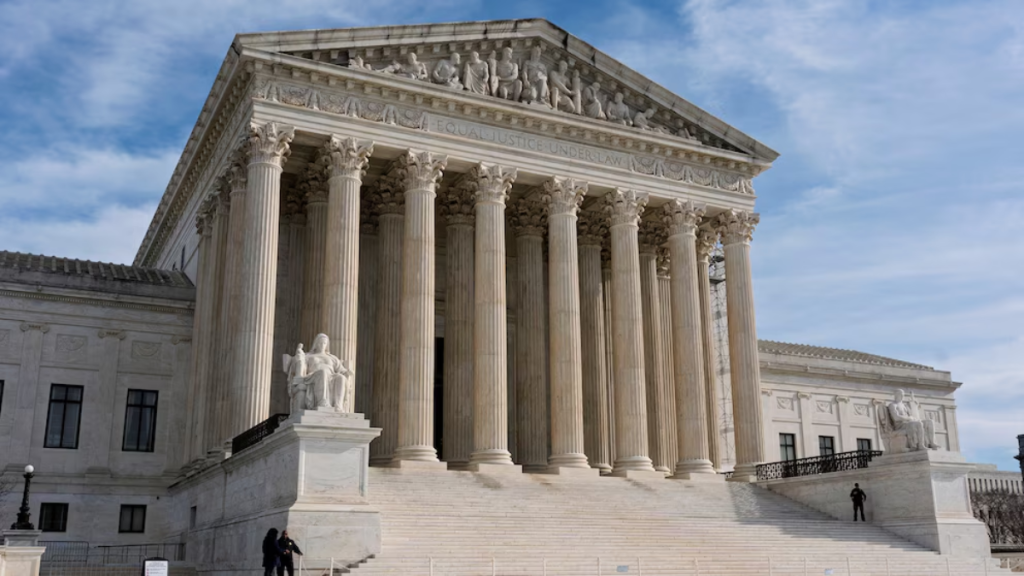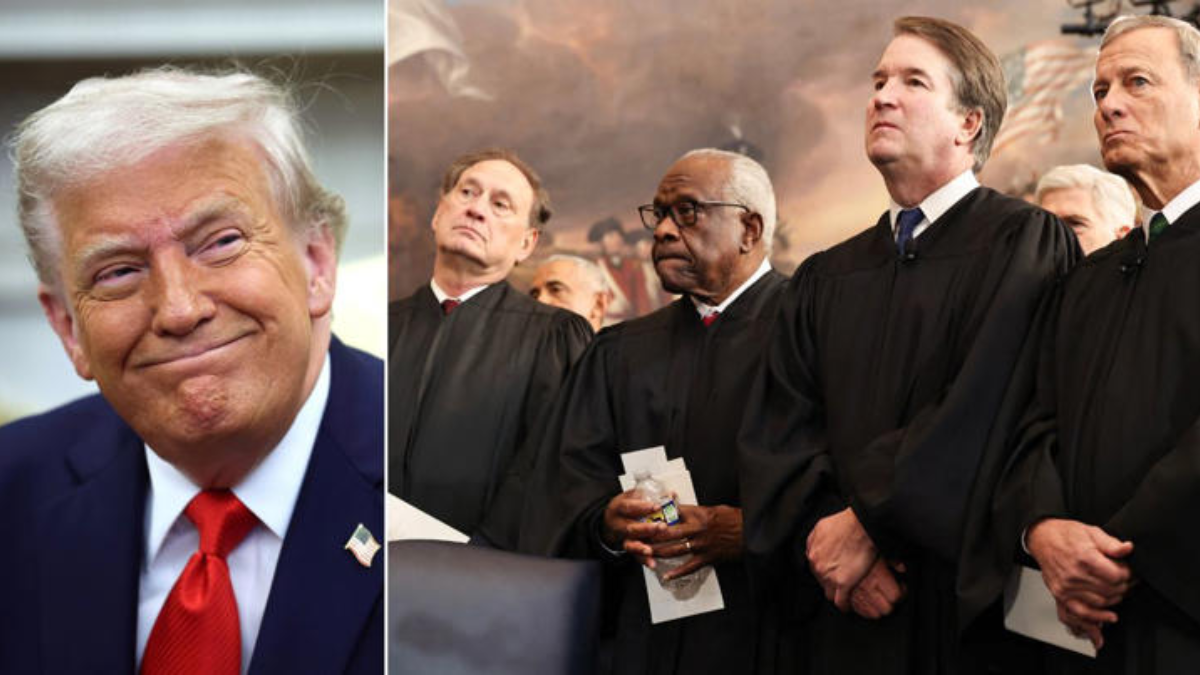In a rare move, the U.S. Supreme Court has agreed to hear arguments on May 15, 2025, regarding former President Donald Trump’s executive order seeking to eliminate birthright citizenship for children born in the United States to undocumented immigrants.
This comes after an emergency appeal from the Trump administration requested that nationwide injunctions blocking the policy be lifted.
The upcoming hearing is highly significant, both legally and politically. It pits a core constitutional principle—the 14th Amendment’s guarantee of birthright citizenship—against Trump’s controversial push to reshape immigration policy through executive power.
Critics argue the policy is a direct threat to American constitutional values, while Trump supporters claim it’s a necessary measure to preserve national integrity.
The Executive Order That Sparked a Legal Firestorm
The policy in question was enacted in January 2025, immediately after Trump resumed the presidency. Titled “Protecting the Meaning and Value of American Citizenship,” the executive order aims to redefine eligibility for U.S. citizenship by birth.
Under the order, only children born to U.S. citizens or lawful permanent residents would qualify for automatic citizenship.
This approach directly challenges the longstanding interpretation of the 14th Amendment, which states that “all persons born or naturalized in the United States…are citizens of the United States.” The Trump administration contends that the original intent of the amendment did not include the children of undocumented immigrants.
However, legal scholars and federal courts have overwhelmingly upheld the amendment’s broad inclusion since the landmark 1898 Supreme Court decision in United States v. Wong Kim Ark.
Federal Judges Push Back: Nationwide Injunctions Issued
After the order’s signing, several lawsuits were filed by states including Washington, Illinois, Oregon, and Massachusetts. These suits challenged the executive order’s constitutionality, arguing it would strip citizenship rights from potentially hundreds of thousands of individuals born on American soil.
Multiple federal judges responded swiftly, issuing nationwide injunctions to block implementation of the policy. These courts determined there was a strong likelihood the order would be found unconstitutional and noted the irreparable harm that could come from revoking or denying citizenship.
In its emergency request to the Supreme Court, the Trump administration argued that these nationwide injunctions overstep judicial authority and block the executive branch from enforcing lawful policy. Trump’s acting Solicitor General urged the high court to immediately lift the injunctions and allow the policy to move forward.
Supreme Court’s Rare May Session: What to Expect
The decision to hear this case in mid-May is unusual, as the Supreme Court typically does not add new oral arguments this late in the term. The justices will consider not only whether to allow the executive order to take effect pending litigation but also the broader issue of whether universal injunctions are constitutionally valid.
This case presents a potentially landmark moment for how the judiciary interprets executive authority and the protections afforded by the 14th Amendment. The hearing could significantly alter legal standards for nationwide injunctions, which have become increasingly common in recent years to stop federal policy changes across the country.
If the Supreme Court rules in Trump’s favor, it could open the door for further restrictions on birthright citizenship and embolden broader use of executive orders to bypass Congress. Conversely, a ruling against the administration would reinforce long-held constitutional interpretations and could signal limits on presidential power in immigration matters.

Political and Human Consequences
The stakes are high. If the Trump administration ultimately prevails, children born to undocumented parents would no longer be granted citizenship by birth. This could result in legal limbo for many families, increased deportations, and a surge of legal challenges in state and federal courts.
Politically, the case serves as a flashpoint in the 2024 election aftermath. Trump has made immigration a central theme of his agenda, and this legal battle reinforces his determination to pursue hardline policies regardless of judicial pushback.
Immigrant rights groups, civil liberties advocates, and several state attorneys general have vowed to continue fighting the policy. Meanwhile, Trump’s base views the executive order as a bold step toward restoring the rule of law and ending what they call “birth tourism” and the misuse of constitutional protections.
Conclusion: A Defining Legal Battle Ahead
The Supreme Court’s willingness to fast-track this case demonstrates its importance on the national stage. Whether it ultimately reshapes the future of birthright citizenship or serves as a cautionary tale about executive overreach, the decision will have lasting implications for American constitutional law and immigration policy.
As the justices prepare to weigh arguments, millions across the country—and beyond—will be watching. The outcome could redefine not only what it means to be born in the United States but also how far a president’s power can go in reshaping that definition.
For further information on the Supreme Court’s hearing schedule and Trump’s immigration policies, visit Reuters’ coverage.
Disclaimer – Our team has carefully fact-checked this article to make sure it’s accurate and free from any misinformation. We’re dedicated to keeping our content honest and reliable for our readers.
